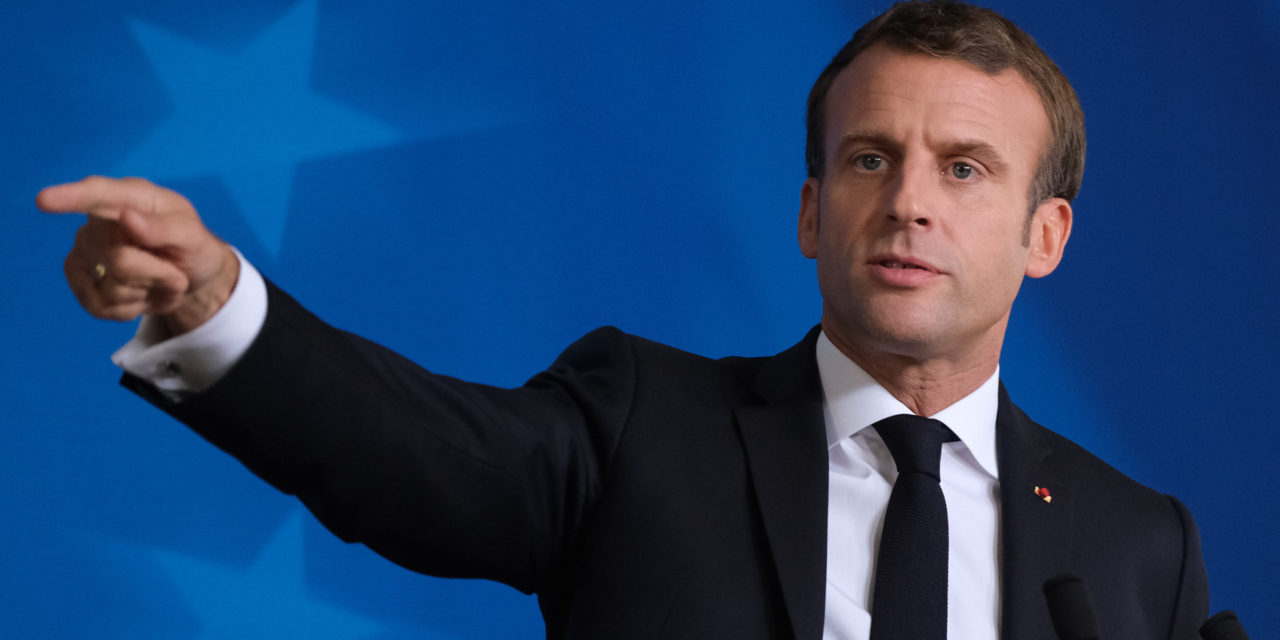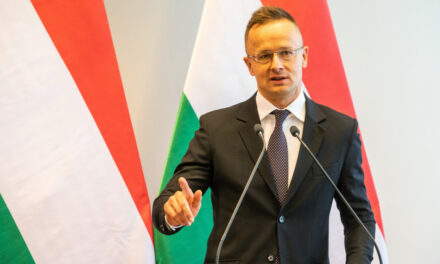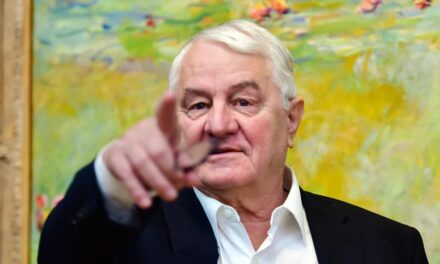Emmanuel Macron arrives in Budapest at a remarkable time, in the days between the formation of the German government and the beginning of the French EU presidency: France, our country, and the V4 have common interests in several matters, but an uncritical collapse is not expected either.
Emmanuel Macron has busy days. Three weeks and France will take over the presidency of the Council of the European Union, for which the apparatus responsible for foreign affairs and European affairs is preparing with full force. France has not held this important position for a long time, but that is not the only reason why everything must work flawlessly during these six months.
There will be elections in France in April, and Macron does not want to move out of the Élysée Palace,
if not necessary - it must therefore be shown that, with Frankhon at the helm, he is able to proactively shape the fate of the European Union in accordance with his own interests. And then there are even the Germans.
Germans are visiting Paris a lot these days. The left-liberal coalition government led by Olaf Scholz took office in Berlin on Wednesday, and the new foreign minister, the Green Party's Annalena Baerbock, made her first official trip to the Quai d'Orsay, her French office partner, the next day. By the way, Baerbock went to Paris by plane , but the German Ministry of Foreign Affairs did not make such a big deal of it as the fact that the co-chairman of the Greens already traveled to Brussels on the Thalys fast train.
On Friday, Olaf Scholz also targeted the French capital - this is a tradition for newly installed German chancellors, as
Macron's first official trip also led to Berlin.
But why do the Germans want everyone to build windmills?
There was an essential difference between the two visits: Scholz and Macron did not dare to go beyond the usual politeness, while Baerbock was not shy and went into one of the most important current controversial issues of the unbreakable German-French friendship, the nuclear issue.
The positions on this issue have been clarified for a long time: as long as the French continue to trust their nuclear power plants and even want to build new ones, the Germans, for their part, will close them all and would prefer to oblige others to do the same. The fact that France - and a number of other European countries, including our country - want to ensure that nuclear energy and natural gas are considered green energy in the EU in the future gives the debate that has been going on for a long time more current. Germany and others, on the other hand, do not want pro-nuclear countries to get away with greening their energy sector so easily. said it on Thursday in Paris:
"Germany will oppose France's efforts," at least as far as nuclear energy is concerned.
This is not so surprising. German nuclear power plants operated in a strong socio-political headwind practically from the moment they were put into operation, which was only further aggravated by the serious nuclear disasters of history. It should be remembered that the German government decided to gradually shut down the reactors operating in the country just after the accident at the Fukushima nuclear power plant. This is not independent of the fact that the brilliance of renewable energy sources had already begun in Germany at that time.
It's not that wind turbines and solar panels produced the most electricity, as this was not the case even in 2018: around this time, only about 35 percent of Germany's total electricity production came from renewable energy sources - that is, less than brown and black coal combined . .
But it is certain that in Germany by this time
an entire industry was built on the Berlin political class's fascination with solar panels and windmills.
In 2020, for example, a German company, the imaginatively named Wind Energy GmbH belonging to the GE group, produced the world's largest new wind turbines. The wind wheels manufactured by the company from Lower Saxony last year are capable of producing a total of 13.53 GW of power - even the results of the largest Chinese factories are dwarfed by this. It is therefore quite good business in Germany to produce wind wheels, and it is in the well-understood interest of both these companies and the German national economy that as many European countries as possible buy German wind wheels (and solar panels).
The big French nuclear business
The French nuclear party has similar motivations. France is a real nuclear power within the EU with its fifty-six operating nuclear reactors (and its nuclear weapons, which is also unique in the EU).
announced just a few weeks ago that he would like to give it a new impetus. A certain French company must have been very happy with this decision: the majority state-owned EDF. Électricité de France is one of the biggest players in the nuclear power market not only in Europe, but in the whole world. In addition to the more than fifty reactors in France, the EDF group also has nuclear power plants in the United Kingdom, Belgium, China and the United States. (EDF was also present in the Hungarian energy sector for a while, but has now sold its shares in both DÉMÁSZ and Budapesti Erőmű Zrt.)
From the point of view of the state energy golem, it would therefore not be the last thing if France succeeded in getting the electricity produced by nuclear power plants to be recognized as green energy by the EU. Considering that most of the French nuclear reactors are already very old, the construction of new reactors would be a sure source of income for EDF in the coming decades as well - both domestically and internationally.
Ultimately, France and Germany will have to fight the nuclear energy vs. renewable energy debate against each other, the EU does not want to take a firm position on the matter for the time being. , Frans Timmermans said
the Commission also wants to support those countries that choose nuclear energy.
Macron in Budapest: friendly right hand and raised index finger
Returning to Emmanuel Macron, his official trip to Budapest on Monday could also be crucial for him from the point of view of "nuclear war". It is a long-planned visit; this will be the first time that the president of the French Republic will visit our country (by the way, Macron has already visited all the EU member states of the region, Austria and Romania twice - although these visits are partly connected to the Austrian and Romanian council presidencies).
The French president can meet the leaders of pro-nuclear countries in Budapest,
since the Czech Republic, Slovakia and our country also operate nuclear power plants, and Poland supports the declaration of nuclear energy as green energy. France is also interested in the future construction of nuclear power plants in Poland and the Czech Republic. The V4+France summit in Budapest can therefore be seen as a smaller jamboree of pro-nuclear European countries, but there is more to it than that.
Ultimately, Macron is coming to Budapest to show his strength and look around.
To demonstrate strength, because the French president will certainly tell Viktor Orbán what the prime minister already knows: until the chancellery and the foreign ministry get their act together in Berlin, France is the boss in the European Union - even after that.
From the point of view of our country, this primarily means that, despite the existing, very clear differences of opinion, cooperation with Paris on certain issues is possible - such as migration, or nuclear energy, for example.
Macron, on the other hand, does not want to play Merkel,
and he will not play the character of the cautious consensus seeker. In other words, despite the great French-Hungarian agreement on nuclear energy and despite the fact that our country also participates in the French Tacuba operation, Paris - as several of our French interlocutors made clear during previous background discussions - will not cross a single blade of grass to prevent it from being used against Hungary the rule of law procedure.
But Macron is also coming to look around, as he will not only meet Viktor Orbán, János Áder and the Visegrad prime ministers. the meeting with the various actors of the Hungarian opposition , at which Macron will meet with Gergely Karácsony and Péter Márki-Zay, among others. There is a lot of interest in the opposition prime minister candidate in France. Several major French newspapers have recently covered the mayor of Hódmezővásárhely and his campaign, emphasizing that Márki-Zay may have a realistic chance of defeating Viktor Orbán next spring. And there is no doubt which candidate's victory the foreign leaders would consider to be the more convenient option from their point of view, in line with their own interests.
László Greczula Levente / mandiner.hu












